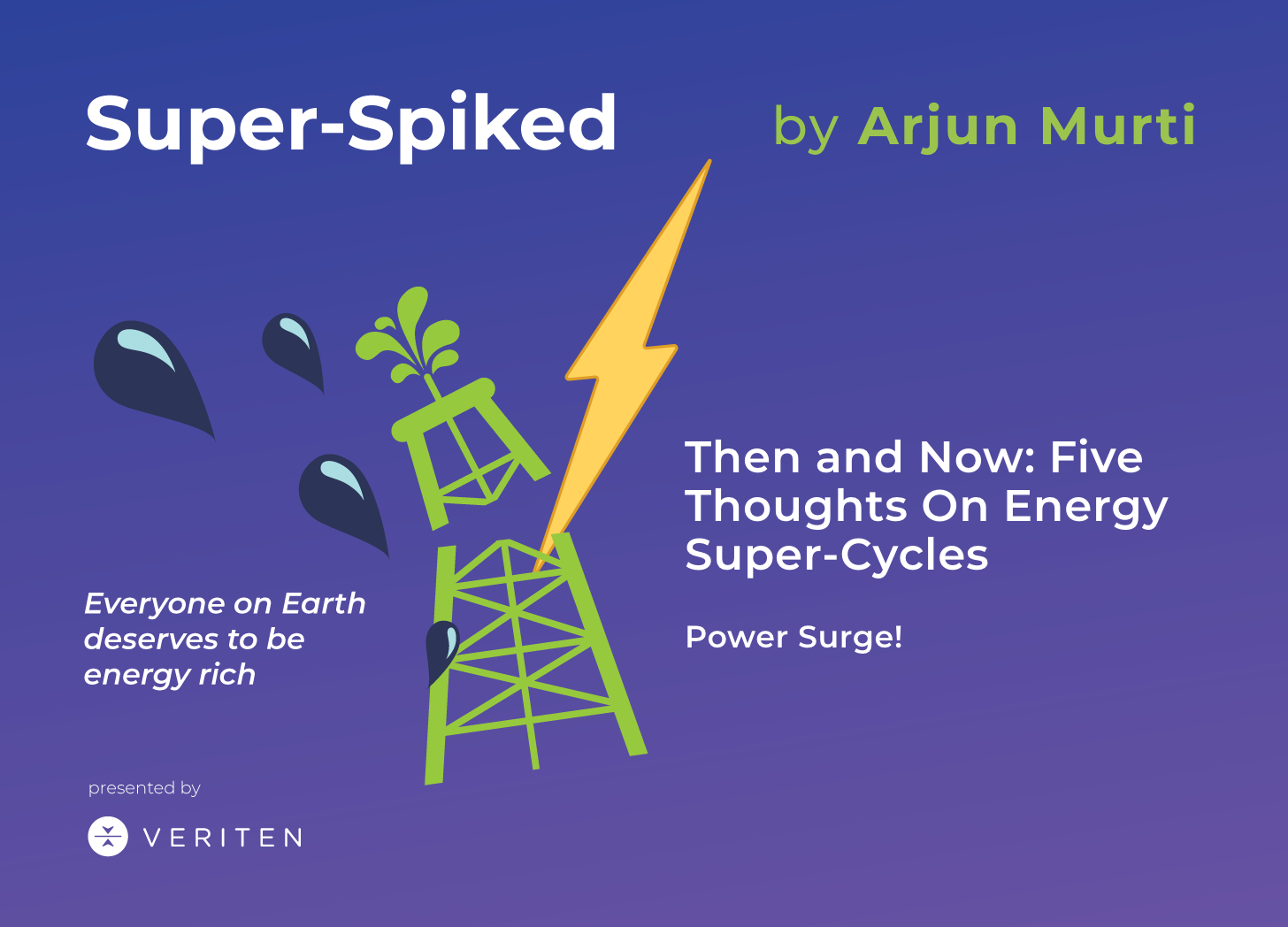Episode Details
Back to Episodes
Super-Spiked Videopods (EP83): Then and Now: Five Thoughts On Energy Super-Cycles
Description
In last week’s Super-Spiked (here), we wrote about Power being the third super-cycle in our lifetime. In this week’s short video podcast, we wanted to share some thoughts on how the early days of the China-BRICs expansion compares and contrasts with the current AI-driven mania and its impact on power markets. We are calling this “Then and Now” with the aim of trying to take the best lessons from the last super-cycle so we can be better prepared and hopefully do a better job navigating the current one. We have five points to make:
(1) Global GDP acceleration coming?
Will we see an acceleration in global GDP back above 3.5% and possibly 4% versus the slower 3% or so that we have been seeing in recent years? One of the big things most oil analysts got wrong early in the China/BRICs period was that global GPD was accelerating, in that example led by China but ultimately spilling over to many other parts of the world. Today, we see signs that energy usage in both China and the United States is on-track to be better than many had feared for 2025. That’s not the same thing as saying we are back to boom times like 20+ years ago. But it does bear watching.
(2) All commodity areas benefitted from the China/BRICs expansion
Oil most notably, but natural gas, coal, steel, copper, etc., all had their own period of strong performance. It is our assessment that oil was the most important of the China/BRICs commodities given its size and global criticality. This go round we see oil as merely a beneficiary of a power super cycle, not its driver. And to be clear since some of you have asked, oil markets will benefit from general economic expansion that will come from a Power Surge as well as the increased construction activity from building data centers. We are not arguing for oil-fired power generation per se, though perhaps we do get some of that as well. Diesel generators come to mind.
(3) Model out a super-cycle on revenues and earnings
For winning sectors, make an effort to examine what top of cycle conditions can truly look like. As an example, at a time oil prices were around $40/bbl, we ran scenarios as to what $100/bbl oil would like, which is very different than the +/- $10 sensitivities most analysts would run. For some of you, that may not mean much. What we are saying is play-out as best as you can what a multi-year bull market looks like and don’t anchor yourself to what was a different recent past. It is not about placing a 100% probability on that upside coming true, but if the probability is greater than zero, model it as best as you can.
(4) Figure out the signposts for peak
Try to figure out the signposts for what would truly cause the cycle to peak and then turn. In the China/BRICs area, we sought to model demand destruction pricing which we originally estimated would occur at $105/bbl. That was partly correct. It certainly helped frame the oil price upside. But for oil and gas equities, we did not give adequate consideration to what we now call our “Quadrilateral of Death” which means that peak return on capital for the sector was what mattered most for oil and gas equities, not the raw oil price peak. As we noted in last week’s post, we suspect the Quadrilateral of Death is not the correct analytical framework for most power-oriented sectors. We need to figure out what is, so we can better assess when this super-cycle has truly reached its half-life. We think we have some time to figure this out.
(5) Navigating volatility
The final area to think through is how as an investor or corporate do you want to navigate volatility. A great example was the Deep Seek sell off last December. I am sure there will be many more to come where the first thought from people will be “power theme had a great run, it’s now over, sell the stocks”. My personal style is the buy-and-hold